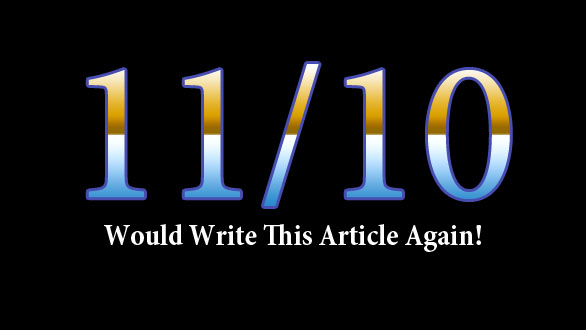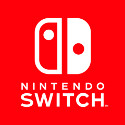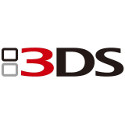
I’m used to review scores. GamePro and many other gaming magazines of the 90’s gave them out and it’s how we judged video games. These days, Kotaku has noted that sometimes an over importance is put on Metacritic scores to the point of bonuses even being offered to developers if good scores are obtained. Kotaku itself has a right to point out the follies of review scores since like some other sites, they have developed their own system. Instead of a score, Kotaku simply tells readers if a game is worth playing or not, or in rare cases if gamers should wait it out for now with a ‘not yet’ rating.
There’s nothing really wrong with review scores, as long as they’re understood. I think that’s the biggest focus of a yes or no answer. It gives you the direct approach. The question of, “Should I be playing this game?” is instantly answered. With review scores it’s more of a hot or cold game. I mean, we’re a great example of that ourselves at Darkain Arts Gamers and on our sister sites. Dying Light and Funk of Titans are separated by a mere one point in our rating system. Of course these scores have variables to them, and that’s where things get tricky. So how do we see our review score system and what does it mean?
Let’s face it, many of us here are hardcore gamers. We appreciate all of our readers, but the main point is that many of you come here for another perspective. So we usually take that to mean that when review scores are released, gamers know that means that each product is being rated individually. We’re not comparing across genres or across titles. For what the game is that we’re reviewing, that’s like our percentage of how cool we think it is. Anything 6 and above tends to be something we enjoyed, but the lower that score, the more variables that mean the game may not be for you have surfaced. Usually we don’t go much lower than a 5. At a five, we’re basically saying it wasn’t for us and you may want to research the game further. Anything lower I personally haven’t rated. Why?
It takes a lot to produce a game, and even with a title that is a complete miss there are still components that make it worthwhile. Now that doesn’t mean that a game should be carried on music alone, but I’m sure in rare cases it has happened. Yes, some games can be completely broken and in those cases, it’s understandable to have low scores. I personally don’t believe any game otherwise should be below a 5. Sure, that may make me sound like an easy going teacher that is just afraid to fail someone, but that isn’t the case. Darkain Arts Gamers specifically was founded by people who understand games. We’ve all dabbled in programming before and we know how games work. With that perspective it gives us a larger understanding of what is going on in the mechanics.
This can be a bad thing of course too. It means we see a lot of errors that we’d personally love to change or fix. I’ve had that with games before that after the curtain was removed and I could understand why a game was playing the way it was, I wanted to correct it. A combat combo in one game always ended with a drawn out last pose. In that time, you could be overwhelmed by enemies. If pressing the attack button snapped your character back into action, it would have been fine. It was that delay that destroyed it for me. Needless to say, this shows that we can both be understanding or even more frustrated by games. But it does give us a unique perspective.
The problem with review scores is they are subjective. I once gave a title a 5.5 because I was frustrated with what I’d played. What does that mean? To me, it meant that others may love it to pieces but the game wasn’t for me. I was going in blindfolded. I didn’t know what the purpose of the game was, why it had limited stages, or even how long the games development had been. All I knew was I was being a consumer and I wasn’t the most thrilled with what I was playing. However everyone is different. Look at BrokenJoysticks.net and the Wonderbook review on the site. It was reviewed by a fellow writer as a 3. However months later a friend showed me the Harry Potter title for the Wonderbook and we had a ton of fun with it. Again, it’s all subjective.
So are review scores outdated? Maybe. Perhaps they just need a better form of expression. The concept of Metacritic is good! It brings together scores to form an overall score. Even a gamer score is included for the public to participate in. The biggest problem is that none of us are the same. The most important part of a review is the paragraphs that we all agonize over when we’re trying to express what makes a game good to us. It’s in those paragraphs that we’re truly expressing our review score and telling our readers how we feel about our experience.
Take our review scores as an indication of what we thought overall. On a scale of one to ten, how much fun we had. But please, if you have a vested interest in the game, read what we have to say about the title. If you’re still not convinced, still wary and other reviews haven’t convinced you either, maybe wait it out. I have to admit, I almost passed on a game I loved because of a bad review. I’d read a negative review for Draconus: Cult of the Wyrm for Dreamcast, however a friend had the game. So late one night we sat down and played through it. We loved the game through and through!
Our scores reflect the experience we had with each video game. The review that goes along with them justifies why we believe the game is worth that score. Currently, it seems companies want to see these scores, so we are sticking with them. My best experience with any score I’ve given for a video game has been with Scourge: Outbreak for the Xbox 360. The game seemed to have some pretty rough scores but I enjoyed the experience! There was enjoyable story, some beautiful level design, and a clever use of the Gears of War mechanics. I gave the game a 7.5 which was up there with a lot of titles I really enjoyed. It reflected my enjoyment level with the game, not to compare it to those other titles though obviously. The developers were happy with my score and actually tweeted that it was a fair review of their game. That meant a lot to me. I didn’t embellish, nor did I see what others had scored the game so low for. I’d completed my honest job of explaining who would like the game and given it a fair overall score for what the product was to me. That is really what review scores are all about.
PS: If Nintendo wants that coveted 11/10 above, all they need to do is make a sequel to Doki Doki Panic that involves Wart, Bowser and Wario as villains.



